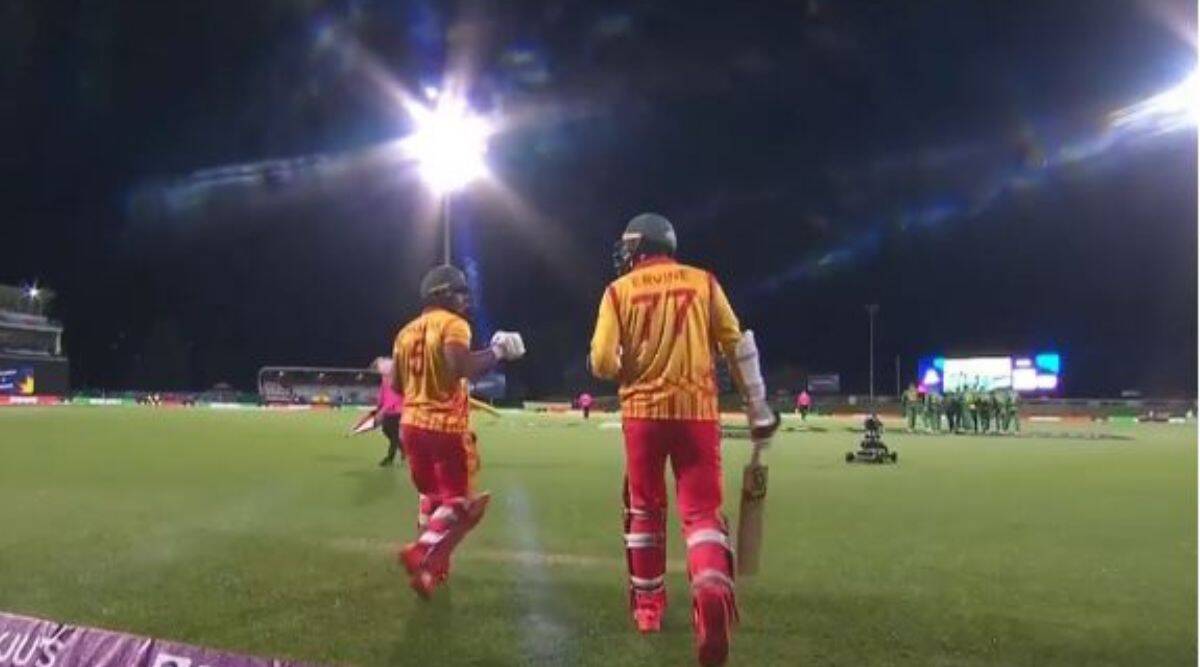Latest News

Hobart conditions ridiculous says Houghton

South Africa were nearly winning their men's T20 World Cup opener against Zimbabwe at the Bellerive Oval in Hobart on Monday when downpour finished the match uncertainly. However, it was the Zimbabweans who appeared to be more unglued about that result with mentor David Houghton accursing the circumstances as perilous and "ludicrous".
"I comprehend the need to attempt to get these games [played] for general society and the people watching on television, and the need to attempt to play and obtain an outcome in somewhat nasty weather conditions," Houghton told a question and answer session. "In any case, I think we exceeded that imprint in this game. I thought there were four or five overs where we ought to have fallen off.
"I don't figure we ought to have even bowled a ball, in all honesty. However, the umpires are the folks going with those choices out in the center, and they assumed it was fit to play. I can't help contradicting them yet there's very little I can do off the field."
The beginning of the match was deferred by more than more than two hours, and the game was diminished to a nine-overs-per-side issue. An interference saw South Africa's answer additionally abridged to seven overs. Play continued, however was canceled by umpires Ahsan Raza and Michael Gough with South Africa 13 takes off from pulling in their reexamined focus of 64 and with two overs to be bowled to arrive at the five overs that would have comprised an innings. South Africa were in front of the DLS prerequisite at that stage, and would likely enjoy held the benefit had five overs been bowled.
Be that as it may, Houghton didn't keep down in his analysis: "The downpour had got so weighty at one phase, it was absurd. For the vast majority of the night it was foggy with mizzle, however it got to the stage where we could hear it pounding on the rooftop in the hole. To me that is never again mizzle and shower. That is an ideal opportunity to get off the field.
"What's more, the field was wet when we began - it was wet when South Africa handled. So they were troublesome circumstances for the two sides. However, it just got increasingly more wet as we bowled. At the point when your guardian is sliding attempting to drop down to the leg side facing the spinners, it is excessively wet. I don't think the circumstances were on the whole correct to continue playing."
Gotten some information about his group's correspondence with the authorities, Houghton said: "I know that Craig [Ervine, Zimbabwe's captain] and [Sikandar] Raza had a word with the umpires, and fundamentally asked them what they comprise as downpour since we're getting very wet. At last Sean Williams expressed, similarly as he was going to begin bowling, that he didn't figure he could bowl, that it was excessively wet. And afterward they canceled us."
Houghton proposed the umpires were befuddled about the match circumstance when play continued once and for all: "After whenever we first fell off, when they diminished it to seven overs, there was somewhat of a postponement on the grounds that nobody appeared to understand what the objective was."
The significant flash for Houghton's displeasure may be the way that Richard Ngarava must be helped from the field in the wake of falling vigorously after he had bowled the last wad of the second finished. "He's laying in the change room with a lot of ice lashed to his lower leg," Houghton said. "It's too soon to evaluate the harm yet we're troubled about the way that he's not in an extraordinary space."
South Africa mentor Imprint Boucher said his group were quick to keep playing, yet he didn't appear to be basically as unsettled as Houghton: "We're here to play a World Cup, and we needed to play. It seemed like the two chiefs needed to play toward the beginning. In the event that you take a gander at the game before [at a similar ground, among Bangladesh and the Netherlands], the field was wet too. The reality is players don't go with those choices. The authorities are there to settle on those choices."
Boucher said his group had likewise battled with the circumstances in the field, and proposed their rivals were fighting excessively: "We were in an excellent position. So in the event that we leave this game reasoning we were hard finished by and regardless of whether the game ought to have occurred ... Assuming Zimbabwe were in our position they would have needed to continue playing."
Maybe Boucher's feeling of quiet came for a fact. It was he who hindered the conveyance that fixed a tie in South Africa's 2003 World Cup match against Sri Lanka at Kingsmead. The South Africans, on the field and in the changing area, had erroneously thought the Duckworth/Lewis standard score was the objective. They expected to dominate the game to advance to the subsequent round, and were consequently wiped out in the primary round of their home competition.
"Indeed, we haven't had a decent history with downpour," Boucher said. "Yet rather have it occur in the primary game when we're still in charge of what we can do."
South Africa's next match is against Bangladesh in Sydney on Thursday. A 70% opportunity of downpour has been figure.